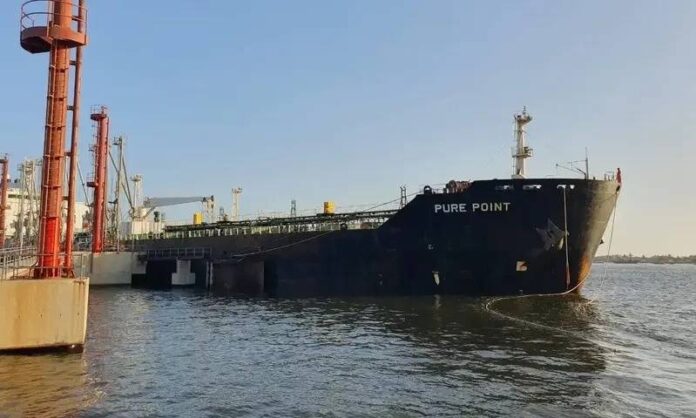Pakistan witnessed a 13% reduction in overall energy imports, reaching $1.42 billion in November 2023, reflecting subdued demand for petroleum, oil, and gas products.
Economic activities remained sluggish due to slow growth, and increased product prices affected purchasing power across various sectors.
The diminishing demand for products, especially furnace oil used in power production, led refineries to explore export opportunities. Exporting furnace oil allowed refineries to import larger quantities of crude oil, enabling the production of premium products such as petrol and diesel.
According to the latest data from the Pakistan Bureau of Statistics (PBS), refined product imports dropped by 29% to $499 million in November compared to $708 million the previous year.
Meanwhile, crude oil imports increased by 4% to $566 million from $546 million in the same month last year.
The import of Re-gasified Liquefied Natural Gas (RLNG) decreased by 9%, amounting to $290 million. This decline was largely attributed to elevated international prices and the country’s dwindling foreign exchange reserves, impacting its ability to finance such imports.
Industries, including major players like the textile sector, showed reluctance in purchasing expensive imported gas due to rising costs, making it economically unviable for sustaining factory operations and overall economic activities.
The lackluster performance in large-scale manufacturing (LSM) industries, coupled with a 33-month low in electricity production in November, highlights the continued sluggishness in economic activities.
Despite achieving a GDP growth of 2.1% in the first quarter (Jul-Sep) of FY24, analysts caution that this growth is influenced by specific factors such as improved agricultural output, particularly in cotton and rice.
The low-base effect and the contraction of the economy by 1% in the same quarter of the previous year further contribute to the perceived turnaround.
Experts predict that energy imports and demand for related products are likely to remain subdued throughout the current fiscal year. The caretaker government’s focus on implementing stringent International Monetary Fund (IMF) conditions, including tight monetary and fiscal policies, does not align with pro-growth strategies in the short term.
Anticipating more growth-friendly policies following the February 2024 elections, analysts believe that the next elected government may spearhead initiatives to boost economic growth and subsequently increase demand for energy products by late FY24 or early FY25.
In the first five months (Jul-Nov) of the current fiscal year 2023-24, cumulative energy imports witnessed a 16% decline, amounting to $6.45 billion compared to $7.70 billion in the same period the previous year.
According to PBS data, Pakistan’s petroleum product exports surged to $44 million in November, marking a 512% increase from a mere $7 million in the corresponding month last year.
Recent developments reveal that petroleum refineries primarily exported furnace oil after domestic demand dropped to a mere 10% of the daily output, ranging from 5,000 to 6,000 tonnes. This decline followed the government’s decision to curtail power production from oil-run plants, opting for more cost-effective alternatives like hydel and nuclear power.
Leading refineries such as Pak-Arab Refinery (PARCO) and Pakistan Refinery (PRL) played a significant role in exporting furnace oil among the five refineries currently operational in the country.





Excellent article. The writing style which you have used in this article is very good and it made the article of better quality.
Great job for publishing such a beneficial web site. Your web log isn’t only useful but it is additionally really creative too.
I found your this post while searching for information about blog-related research .. It’s a good post .. keep posting and updating information.
This was a really great contest and hopefully I can attend the next one. It was alot of fun and I really enjoyed myself..
I am a new user of this site so here i saw multiple articles and posts posted by this site,I curious more interest in some of them hope you will give more information on this topics in your next articles.